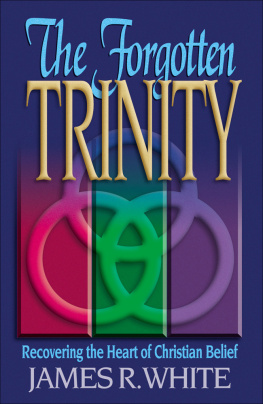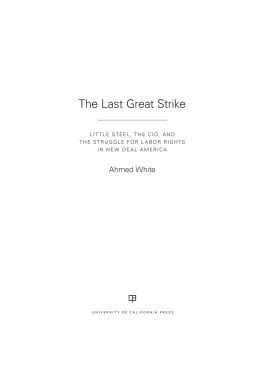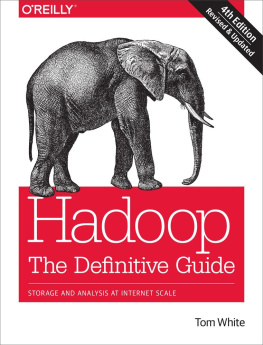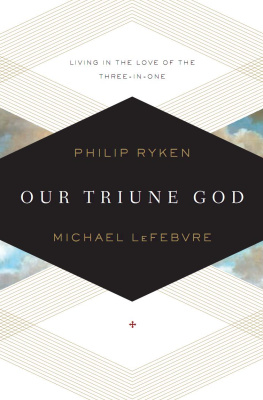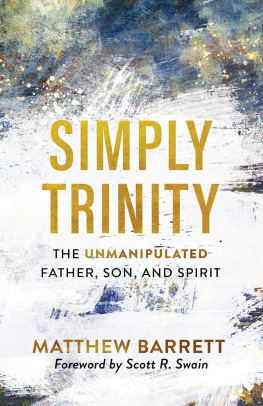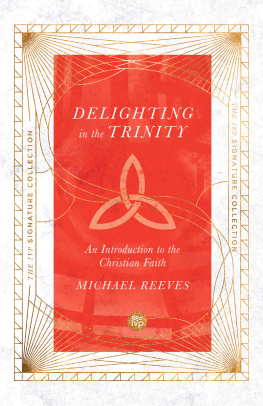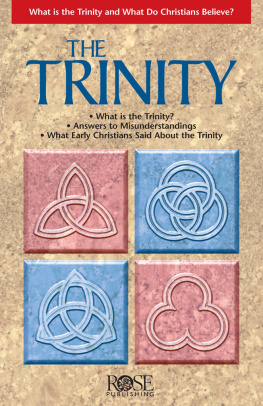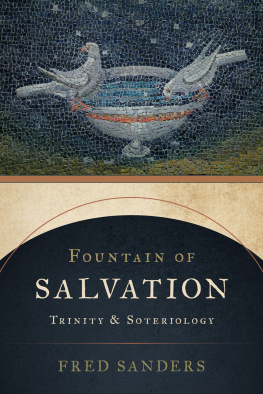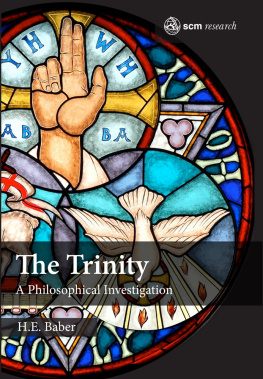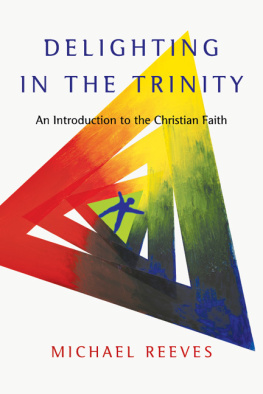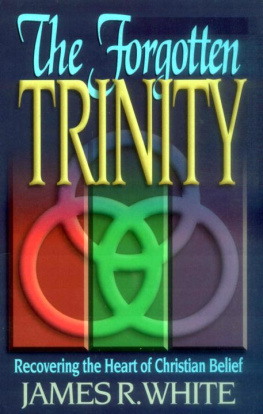
NOTES
CHAPTER ONE
The great minister of Northampton (17031758), considered one of the greatest theologians America has ever produced.
. Ian Murray, Jonathan Edwards: A New Biography (Edinburgh: The Banner of Truth Trust, 1987), 99100.
. William G. T. Shedd, Introductory Essay in Philip Schaff, ed., The Nicene and Post-Nicene Fathers, Series I (Grand Rapids: Eerdmans, 1956), 1011.
. Romans 8:78; 5:10.
. John 3:36.
. 2 Corinthians 5:17.
CHAPTER TWO
. The great bishop of Alexandria, Athanasius (early to mid-fourth century) defended the deity of Christ against the Arian movement.
CHAPTER THREE
. Throughout this work the New American Standard Bible is cited (1995 edition). The NASB follows the standard English custom of rendering the divine name of God in the Old Testament as Lord, using small capitals. This is meant to indicate to the English reader that the Hebrew term is hw=xhy=;, YHWH, or Yahweh (oftentimes badly mispronounced as Jehovah).
. See the discussion in chapter 6 on the significance of this passage to the deity of Christ.
rather than Hebrew. As a result, many feel it is a gloss or interpolation. However, a much more logical reason exists. Charles Feinberg notes, It should, however, be remembered that Aramaic was the lingua franca of the day; so the pagan idolators would be able to read the judgment of God on their idolatry. And in a textual note, he also says,
No one has ever explained why an interpolator would introduce it here. It was a proverbial saying; so it was given in the language of the people (so Streane). The best explanation appears to be that it is in Aramaic so that the exiles could use these very words as a reply to solicitations by the Chaldeans to join in their idol worship.
Charles L. Feinberg, Jeremiah in The Expositors Bible Commentary, 6:449450.
. The KJV translation, God is a spirit, misses the point of the anarthrous use of spirit here. God is spirit= , where the position of the predicative nominative tells us something about God, that is, it is descriptive.
. Hebrew: , me olam ad olam . There is no stronger way to express ongoing, limitless existence than this. The psalmist is contrasting the created nature of the world with the uncreated and hence eternal nature of the Creator, Yahweh.
CHAPTER FOUR
. The imperfect tense of the verb ( eimi ) refers to continuous action in the past. One might compare it to saying, I was eating, in contrast to I ate or I had eaten. Specifically, and most importantly in this context, the verb does not point to a specific point of origin or beginning in the past.
. is in the aorist tense. The main emphasis of an aorist verb is undefined aspect, normally resulting in punctiliar action in the past. Such a verb points to a particular point of origin when used in the context of creation.
. Some have argued against this use of by noting that the same verb is used of Marys presence at the wedding in Cana of Galilee in John 2:1, and the mother of Jesus was ( en ) there. Obviously John is not saying that Mary had eternally been in Cana. Such an argument, however, assumes that every use of indicates eternal existence in the past, and such is not the case. In John 2:1, a specific limitation is provided in the context (that speaks of on the third day) and, of course, eternity itself is not even in view in the passage, unlike the prologue where that is, in fact, the specific time frame provided by the author himself.
. To quote J. H. Bernard, the use of in John 1:1 is expressive in each case of continuous timeless existence. A Critical and Exegetical Commentary on the Gospel According to St. John, International Critical Commentary (Edinburgh: T. & T. Clark, 1928), 1:2. Greg Stafford in Jehovahs Witnesses Defended (Huntington Beach, Calif.: Elihu Books, 1998), 168, attempts to avoid the weight of the distinction found in Johns words:
The contrast between in verses 1 and 2... and ( egeneto, came to be, in reference to the things created in this part of the beginning) is simply a contrast between that which was existing (the Word) during the time period to which John refers, and that which came into existence, namely, the physical universe. It is not necessarily a contrast between an eternal being and created things.
Stafford posits a complex concept of the beginning, attempting to limit the Words preexistence to a particular part of the beginning. The inevitable result, however, is to say that the Word was not the beginning absolutely considered, but was only relatively preexistent to a relative beginning, which is just the opposite of what John is communicating. Stafford assumes, and imports into his exegesis, the creation of the Logos as an immutable fact, despite Johns testimony against such an idea.
. B. B. Warfield in The Person and Work of Christ, (Philadelphia: The Presbyterian and Reformed Publishing Company, 1950), 53, commented:
And the Word was with God. The language is pregnant. It is not merely coexistence with God that is asserted, as of two beings standing side by side, united in local relation, or even in a common conception. What is suggested is an active relation of intercourse. The distinct personality of the Word is therefore not obscurely intimated. From all eternity the Word has been with God as a fellow: He who in the very beginning already was, was also in communion with God. Though He was thus in some sense a second along with God, He was nevertheless not a separate being from God: And the Word wasstill the eternal wasGod. In some sense distinguishable from God, He was in an equally true sense identical with God. There is but one eternal God; this eternal God, the Word is; in whatever sense we may distinguish Him from the God whom He is with, He is yet not another than this God, but Himself is this God. The predicate God occupies the position of emphasis in this great declaration, and is so placed in the sentence as to be thrown up in sharp contrast with the phrase with God, as if to prevent inadequate inferences as to the nature of the Word being drawn even momentarily from that phrase. John would have us realize that what the Word was in eternity was not merely Gods coeternal fellow, but the eternal Gods self.
. is the accusative singular form of . Often people are confused by the fact that Greek nouns change form, depending upon their grammatical usage in a sentence. Greek is an inflected language, and its nouns are declined, meaning they take a different form when they are subject, object, indirect object, plural, etc. These changes in forms do not impact the actual meaning of the noun itself, only how it is being used in a particular sentence.
. That is, believing in one God. Monotheism is the belief in one true God.
. Daniel Wallace, Greek Grammar Beyond the Basics: An Exegetical Syntax of the New Testament (Grand Rapids: Zondervan, 1996), 207.
. Ibid., 208.
. Specifically, for the grammatically inclined, a preverbal, anarthrous predicate nominative, for does not have the article, and appears before the verb, .
. The great American Greek scholar A.T. Robertson in his work Word Pictures in the New Testament (Grand Rapids: Baker Book House, 1932), vol. 5, 45, commented:
And the Word was God ( kai theos en ho logos ). By exact and careful language John denied Sabellianism by not saying ho theos en ho logos . That would mean that all of God was expressed in ho logos and the terms would be interchangeable, each having the article. The subject is made plain by the article ( ho logos ) and the predicate without it ( theos ) just as in John 4:24 pneuma ho theos can only mean God is spirit, not spirit is God. So in 1 John 4:16 ho theos agape estin can only mean God is love, not love is God as a so-called Christian scientist would confusedly say. For the article with the predicate see Robertson, Grammar, pp. 767f. So in John 1:14 ho Logos sarx egeneto, the Word became flesh, not the flesh became Word. Luther argues that here John disposes of Arianism also because the Logos was eternally God, fellowship of the Father and Son, what Origen called the Eternal Generation of the Son (each necessary to the other). Thus in the Trinity we see personal fellowship on an equality.
Next page
